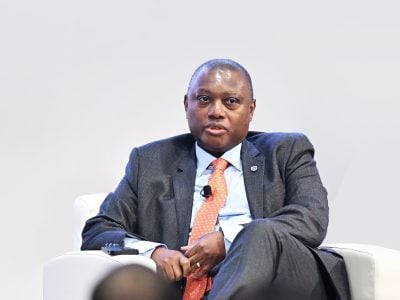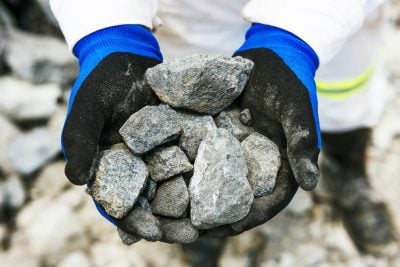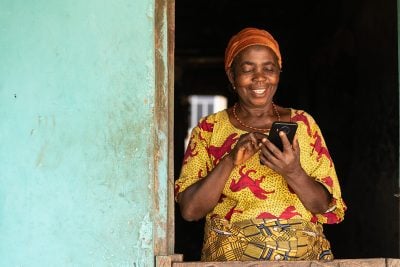Nigeria’s ruling party candidate Bola Tinubu has been declared the winner of the country’s most hotly contested election in a generation, amid allegations of violence, rigging and demands by opposition parties for a rerun.
Tinubu, 70, of the All Progressives Congress (APC) secured 37% of the vote, ahead of Atiku Abubakar of the People’s Democratic Party (PDP) with 29%, and outsider Peter Obi of the Labour Party, who won 25%.
His victory in the race to replace the outgoing president, Muhammadu Buhari, extends the APC’s hold on power in Africa’s biggest economy and top oil producer, despite many Nigerians viewing Buhari’s eight years in office as having been squandered.
It saw Tinubu win the popular vote and at least 25% in two-thirds of states and the capital Abuja, avoiding the need for a bruising run-off. Obi’s strong performance as a third-party candidate in a contest normally dominated by the APC and PDP raise this possibility for the first time in Nigeria’s history.
“I take this opportunity to appeal to my fellow contestants to let us team up together. It is the only nation we have. It is one country and we must build it together,” the president-elect said in his victory speech.
Tense days ahead
Nevertheless, Africa’s most populous nation faces tense days ahead, with opposition parties casting the result as the product of a flawed process.
Voting day was characterised by severe delays, issues with new electronic identification machines, bouts of violence and threats to election officials. Nigeria’s recent currency swap programme led to nationwide cash shortages, preventing many from travelling easily to vote. On Monday, representatives of Abubakar and Obi stormed out of the national tallying centre.
Observer Joyce Banda, Malawi’s former president, said the election “fell well short of Nigerian citizens’ reasonable expectations.” A European Union mission said poor planning and communication had “reduced trust in the process”.
Difficult inheritance for new leader
Unrest and repudiations could spoil an election viewed as critical to stability across West Africa and a possible turning point for the continent’s most populous nation.
Nigeria faces serious crises including economic turmoil, an Islamist insurgency and a nasty spate of kidnappings.
Oil theft in the Niger Delta cost the country $2bn in the first eight months of last year, according to Nigeria’s senate, preventing it from hitting its Opec production quotas.
“The economy is in a dire state,” said Mucahid Durmaz, senior Africa analyst at Verisk Maplecroft, a risk intelligence firm. “By every economic parameter, the Nigerian economy is worse than it was before Buhari came to power in 2015. The fiscal crisis and heavy debt burden will weaken the incoming administration’s capacity to tackle insecurity and socio-economic inequalities, as the debt service payments will soon exceed the entire government revenue.”
Tinubu, one of Nigeria’s wealthiest politicians, and longtime candidate Abubakar, 76, represent Nigeria’s political elite, while Obi, 62, appealed to young, educated Nigerians with a slick campaign and reformist agenda.
Forced into exile by late dictator Sani Abacha in the 1990s, pro-democracy Tinubu, an accountant and oil executive, went on to govern Lagos, Nigeria’s economic hub, between 1999 and 2007, during which the city saw massive foreign investment.
However, its public infrastructure is today in a poor state and Tinubu has been accused of keeping a grip on state finances since leaving office. He has also faced allegations of graft, money laundering, fraud and tax evasion, and has twice been dragged before Nigeria’s Code of Conduct Tribunal before being cleared. His Tinubu’s victory will therefore concern anti-corruption campaigners.
Like Buhari, he has also faced concerns about his health following a string of gaffes at rallies, leading Tinubu’s team to release an eight second video of him riding an exercise bike.
More of the same for Nigeria?
In one of the biggest shocks of the election, Obi handily defeated Tinubu in the latter’s backyard of Lagos state.
Nevertheless, Tinubu’s victory after four days of counting reflects the strength of the APC’s party machinery across major states. An incumbent party has only lost one of six Nigerian elections since the return to civilian rule in 1999.
After eight lost years, Tinubu found himself walking a tightrope between praising the outgoing Buhari, his political ally, and promising “renewed hope”. Supporters say he plans to restructure Nigeria’s ailing economy, devolve more power to the states and create regional hubs for economic corridors. Nigeria has an enormous, young, entrepreneurial population waiting to be tapped.
Yet analysts say his victory could mean more of the same for Nigeria, compared to the more free-market Abubakar and Obi’s plans to create jobs by massively boosting local manufacturing.
“A Tinubu presidency would mean a continuation of Buhari’s policies with statist interventions, such as the closure of Nigeria’s land borders in 2019 in an ill-fated bid to stimulate domestic manufacturing,” said Durmaz.
Tinubu: Federal government must exit failing power sector
Tinubu’s oil production plan prompts scepticism
Want to continue reading? Subscribe today.
You've read all your free articles for this month! Subscribe now to enjoy full access to our content.
Digital Monthly
£8.00 / month
Receive full unlimited access to our articles, opinions, podcasts and more.
Digital Yearly
£70.00 / year
Our best value offer - save £26 and gain access to all of our digital content for an entire year!

 Sign in with Google
Sign in with Google 



